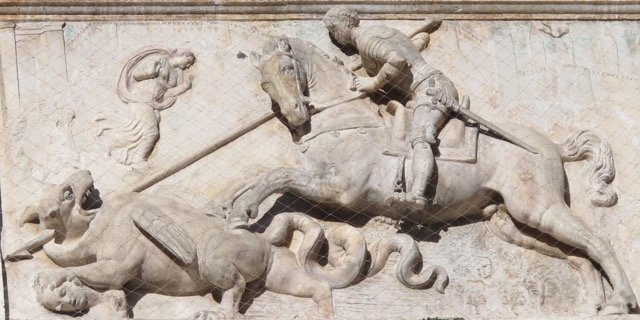The present issue of The Spenser Review focusses on Spenser’s connections with European writers, the opportunities for international engagement that Spenser undertook, and that his work, in turn, offers. Read more…
How far did Spenser’s horizon extend? In the republic of letters, was he citizen or sojourner? One measure is how much he absorbed from foreign authors. Read more…
Over the last 25 or so years, the view of Tasso from the vantage point of Spenser studies has remained fairly consistent, and at times somewhat one-dimensional: the Gerusalemme Liberata as the paradigm of neo-classical epic closure, with all of the ideological associations this generic form entails. Read more…
Petrarch is everywhere in Spenser, though a cursory glance would suggest that he is present largely to be amended by his successor. Amoretti, appearing in 1595 at the peak of the vogue for English sonnet sequences in the mode of Petrarch’s Canzoniere, can be read as a genial rebuke to the Petrarchan valorisation of chastity over companionate marriage. Read more…
Past discussions of Spenser’s relation to Guillaume de Saluste Du Bartas (1544‑90) have understandably centred on Urania. She is the classical astronomical muse who, in Du Bartas’ poem L’Uranie, becomes the Christian muse telling poets to reject trivial courtly poetry and address spiritual and scriptural themes instead. Read more…
The following article offers an overview of the literary and scholarly receptions of Spenser in Russia, as well as a review of the latest scholarly edition of Spenser’s Amoretti and Epithalamion in Russian translation, compiled and edited by Irina I. Burova (2018). Read more…

Bas relief from the exterior of the Scuola San Giorgio degli Schiavoni in Venice. Photo courtesy of Roger Kuin.
- Donald Stump, Spenser’s Heavenly Elizabeth: Providential History in ‘The Faerie Queene’ —
- Peter Lake, Hamlet’s Choice: Religion and Resistance in Shakespeare’s Revenge Tragedies —
- Judith Owens, Emotional Settings in Early Modern Pedagogical Culture: ‘Hamlet’, ‘The Faerie Queene’, and ‘Arcadia’ —
- Ruth A. Canning, The Old English in Early Modern Ireland: The Palesmen and the Nine Years’ War, 1594–1603 —
- Jennifer Richards, Voices and Books in the English Renaissance: A New History of Reading —
